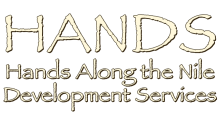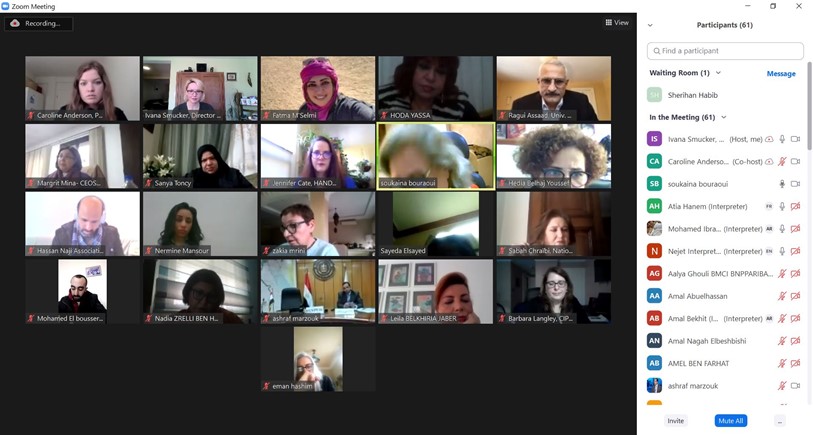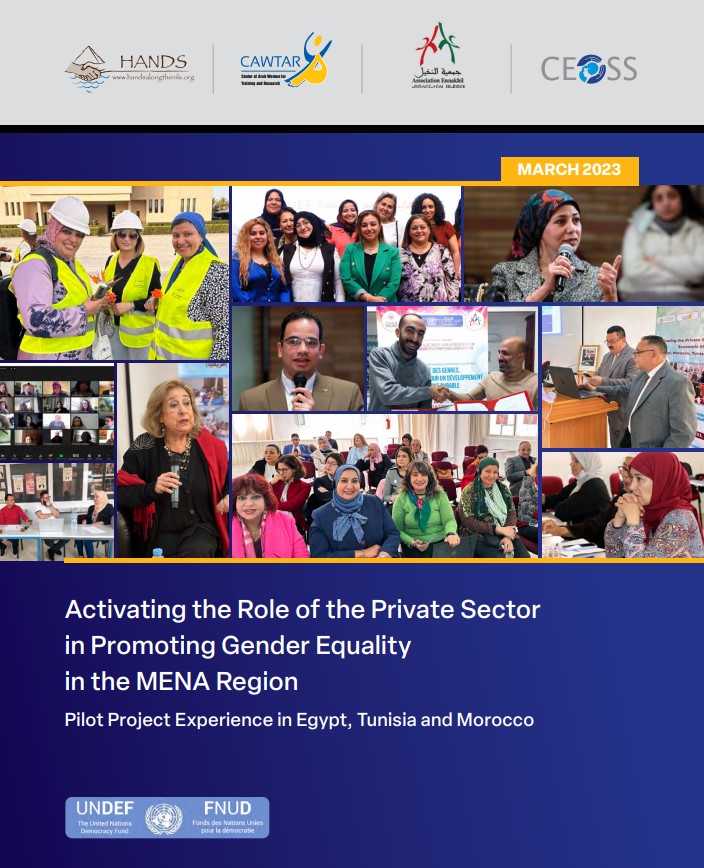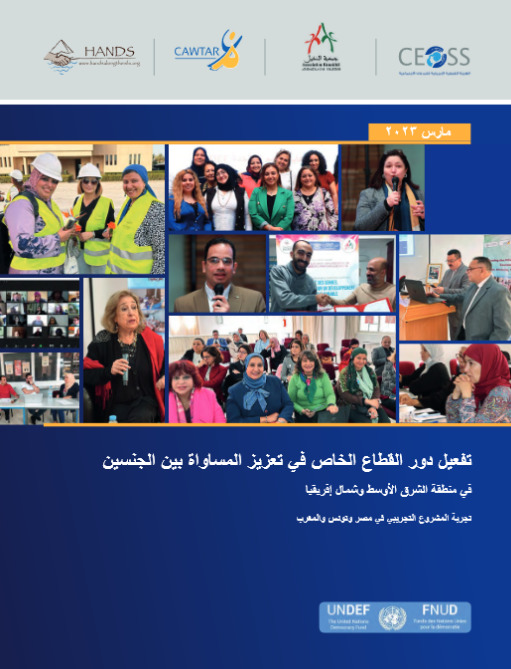Online Regional Conference: March 2-5, 2021
HANDS, together with local implementing partners on this project, CEOSS from Egypt, CAWTAR from Tunisia and Ennakhil from Morocco, hosted a series of interactive and thought-provoking online sessions. The program invited leaders and gender equality champions from the private sector, government, and civil society to discuss the latest trends and opportunities, successful strategies, and ways to partner to address challenges to women’s economic equality in the region. The conference attendees were carefully selected and invited to not only dialogue with other leaders and distinguished speakers, but also to participate in the process of defining the regional conceptual framework that will serve to help guide the future efforts in this arena. The framework will be tested in the three implementing countries, resulting in the final document of best practices and recommendations that will be published with the funding from the donor agency. To view the agenda and the list of speakers, please click here.
Here are some highlights what the leaders in academia, the private sector, government, and civil society in the region shared about the private sector taking the lead in this area during the conference.
What Regional Conference Participants Are Saying:
“I enjoyed learning about specific steps experts recommended for particular sectors to take to work towards gender parity. I also thought it was critical that many speakers mentioned statistics that demonstrate the need for gender equality in the workplace (e.g. the global GDP would increase by $28 trillion by 2025 with gender equality in the workplace).”
“I heard about concrete experiences – women’s successes, examples of policies implemented by companies “champions of diversity”, examples of public policies and tripartite partnerships, etc.”
“It was good to hear personal experiences about procedures and mechanisms followed by Egyptian institutions to ensure equality between the sexes.”
“I enjoyed hearing the experiences of other Arab countries participating in the conference, especially the experience of Morocco.”
National Activities in Egypt, Morocco and Tunisia
In each participating country, local partners implemented activities aiming to further engage local private sector companies and gender equality champions from government and civil society through a series of informative workshops and steps to increase equal economic participation of women.
Our local partners, CAWTAR in Tunisia, Ennakhil Association in Morocco, and CEOSS in Egypt organized multiple training workshops, consultative meetings, and technical support sessions during the period 2021-2022, which ultimately engaged 336 representatives from the private sector, government and civil society in Egypt, Morocco and Tunisia.
Here is the video summary of one of our implementing partners’ workshops:
In all national level workshops and technical support activities, participant heard about inclusive gender policy frameworks, strategies and tools; they examined successful models of gender equitable workplace policies and practices applied by other companies, local, regional and international. Participants used especially developed self-assessment tools to analyze and identify gender-related gaps in their own companies. Based on what they discovered during the workshop, participants from the private sector created action plans to address gender equality in their workplaces. During the implementation of these plans, technical support teams worked with all of them to help guide and support this process.
| By the end of the project, 42 private sector companies (12 in Egypt, 12 in Tunisia and 18 in Morocco) have completed initiatives for greater gender equality and women’s participation. The examples included: updating or creating gender-equality related policies (hiring, pay, promotion, code of conduct, contracting), establishing grievance and reporting mechanisms to address discrimination, sexual harassment, etc., appointing staff in charge of gender-equality reviews and measures, sexual harassment training for employees, revising safety standards, providing additional gender-related services to the employees (i.e., access to services related to gender-based violence), etc. It is important that some of the participating companies conducted more than one initiative, and many committed to continuing to add improvements in this area after the project ends. |

Concluding symposium
This spring, after two years of engaging with various businesses and industries across the MENA region, a four-day regional conference was held in Marrakesh to discuss achievements, lessons learned, and future steps to build on the results of this pilot project. We explored current legislative frameworks and initiatives, the challenges and opportunities the private sector faces in this context, and ideas for multi-sectoral action to accelerate progress towards creating more inclusive and participatory economies. This event engaged private sector companies, banks, industry federations, and civil society organizations. Many government ministries also participated, including the Tunisian Agency for Promoting Industry and Innovation, the Egyptian Ministries of Manpower, Culture, and Planning and Economic Development, the Moroccan Ministries of Labor, Solidarity and Social Integration, and the Marrakesh City Council.
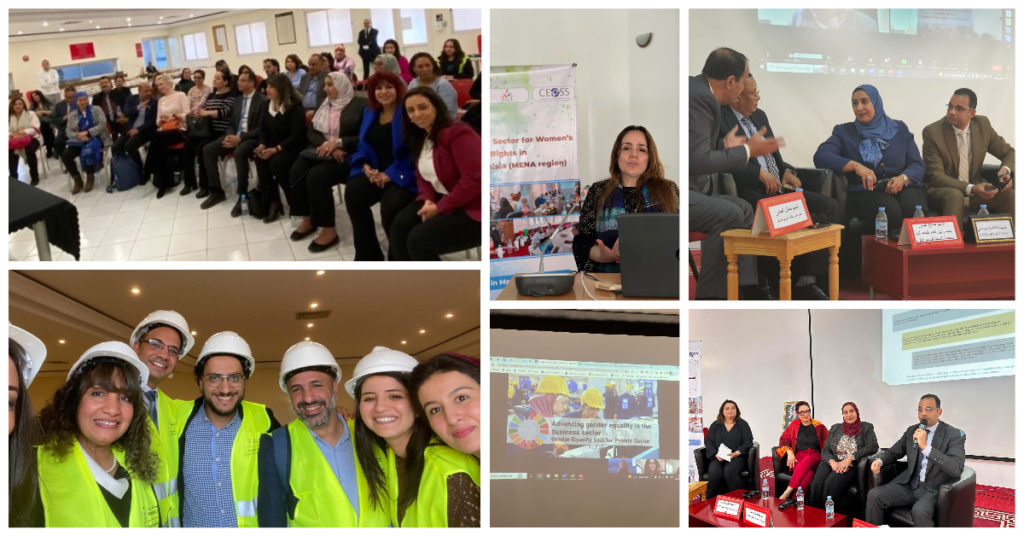
Project Booklet
A booklet about experiences, achievements, lessons-learned and recommendations gathered during the implementation of this pilot project is now available for download, in English and Arabic languages. We hope that the accomplishments and experiences in this project will continue to inspire new initiatives and sustainable action in the region to further accelerate progress towards the goal of allowing women to reach their full economic participation and rights.
Looking ahead
As HANDS and our local partners strive to advance economic empowerment for women in the MENA region, we trust that the framework established, connections made, and policies already being implemented in companies because of this program will lead to continued progress.
It was an honor to work alongside CEOSS, CAWTAR, and Association Ennakhil as our implementing partners in Egypt, Tunisia, and Morocco respectively. We all extend our thanks to the United Nations Democracy Fund for making this regional project possible.

